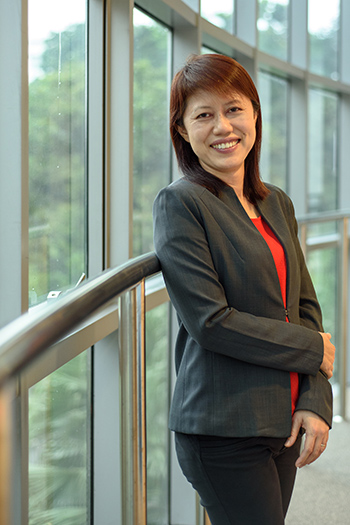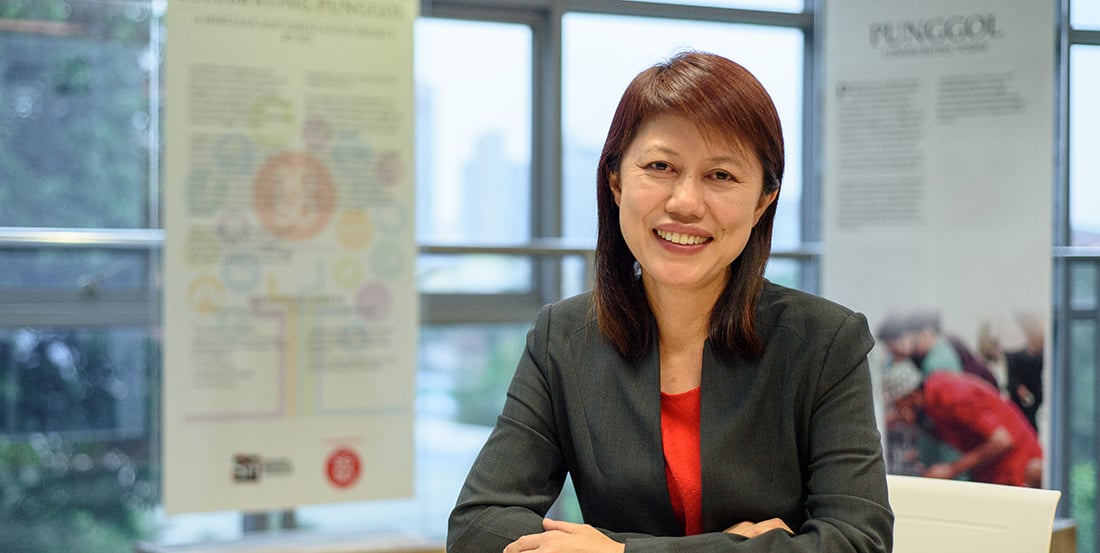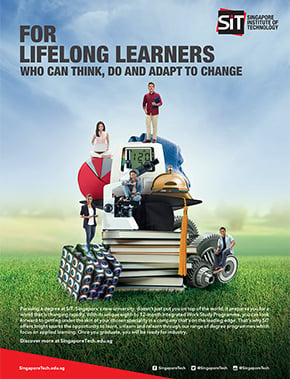T The Singapore Institute of Technology (SIT) may be fairly new, but its degree programmes are entrenched in solid foundation. At SIT, students are given opportunities to build their capabilities, ensuring they develop into forward-thinking specialists and catalysts for transformation.
The university offers programmes in specialised fields such as Engineering, Infocomm Technology and Health and Social Sciences. On top of constantly fine-tuning its suite of niche programmes, SIT is also developing new ones to cater to a wider pool of young talents. For instance, SIT has earlier this year launched the Bachelor of Food Technology programme, jointly offered with New Zealand’s Massey University. This programme aims at empowering undergraduates with industry know-how, so that they can advance Singapore’s food industry and ensure its global competitiveness.
Today we hear from Associate Professor Lim Bee Gim, Programme Director of this unique and industry-relevant programme. She gives us an overview of some course highlights as well as quick insights into a food technology career.
An Insight into the Industry
According to A/Prof Lim, food technology students are given various opportunities to approach real-world challenges. They conduct projects that focus on industry-relevant problems and solutions, and obtain work experience in food processing plants through SIT’s unique Integrated Work Study Programme (IWSP).

Lim Bee Gim
Associate Professor
Programme Director, Bachelor of Food Technology with Honours Programme
A/Prof Lim highlights, “The programme really trains students to be innovators and agents of change in the food industry. Students will learn how to apply scientific and engineering principles, as well as recognise and create what is needed in the marketplace. They will also gain the entrepreneurial skills needed to bring new ideas to the consumer successfully.”
Apart from these opportunities, students also benefit from the wealth of experience possessed by professors and lecturers. It is undeniable that faculty members play a significant part in a student’s undergraduate journey, whether it is through their mentorship and support, or through the industry-specific knowledge they bring to the table. In fact, A/Prof Lim’s work experience in F&B giant Nestlé will help her enhance her lessons with industry insights. She contributed to Nestlé’s R&D centre for 18 years after completing her PhD in Chemical Engineering, and was seconded to one of its factories to delve into manufacturing for a few years.
She tells us humbly, “My experiences in R&D and manufacturing have given me a good understanding of industry standards and expectations. This will help me align my teaching with the needs of the industry. Nestlé also nurtured a culture of self-motivation – leaders there do not spoon-feed employees with solutions, but encourage employees to find their own. I hope to apply this model in my teaching and create a positive learning environment for students.”
Grooming Passionate Minds
A/Prof Lim sheds some light on the various pathways within the global food industry. “With the growing focus on health and well-being through food consumption, countries are looking for new ways to add value to raw products while tackling productivity and cost issues. This has led to an increasing demand for better-qualified, well-trained food technologists,” explains A/Prof Lim.
In fact, this demand for quality food technologists matches the increasing demand among young people to build their expertise in the field. “It is good to know that the programme has received an overwhelming response from interested applicants, even though it has only just been launched! We saw an over-subscription rate of five times among those who indicated the programme as their first choice,” A/Prof Lim shares. For these students who have placed their trust in SIT, they can look forward to rigorous and comprehensive preparations for workplace demands.
Apart from priming students for the workplace, SIT grooms its young talents through a range of SIT scholarships. These are jointly awarded by industry partners, and awarded to students that possess excellent academic achievements, leadership potential and other exemplary qualities. A/Prof Lim tells us, “As a university that prides itself on its strong industry ties, students not only benefit from financial support. They also secure a career in the sponsoring organisation upon graduation. We also offer our own SIT Scholarship, a bond-free scholarship for students who want to keep their options open after graduation.”
Multi-Faceted Individuals
At SIT, students are groomed to become ‘Thinking Tinkerers’, ‘Catalysts for Transformation’, and individuals who are ‘Able to Learn, Unlearn and Relearn’. These are components that are built within what the university calls the SIT-DNA. Apart from these qualities, they are nurtured to be ‘Grounded in the Community’, further proving the notion that SIT concerns itself with more than just the academic side of things.
A/Prof Lim tells us, “Students are given the chance to work with their peers from across disciplines to make improvements in the social, economic or environmental aspects of the community. On top of this, an Enterprise & Innovation Hub has also been set up for students and staff to deliver viable solutions to emerging problems within industry.”
While students are given the means to grow holistically, the onus is on themselves to ensure that their learning journey remains fruitful. Students need to stay committed to their goals and constantly find renewed enthusiasm to carry out new tasks.
A/Prof Lim concludes earnestly, “Ultimately, students must first and foremost possess the passion for whichever field they go into. SIT will then support them by helping them meet their individual learning needs, and enable them to fulfil their potential to the fullest.”

